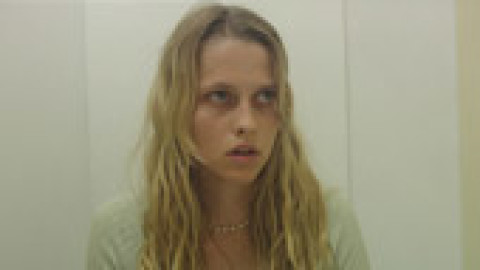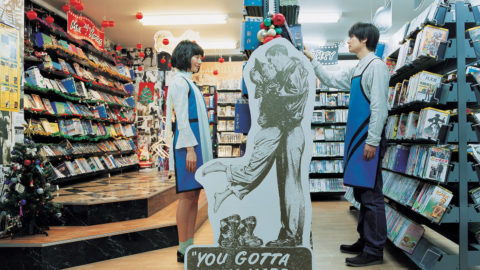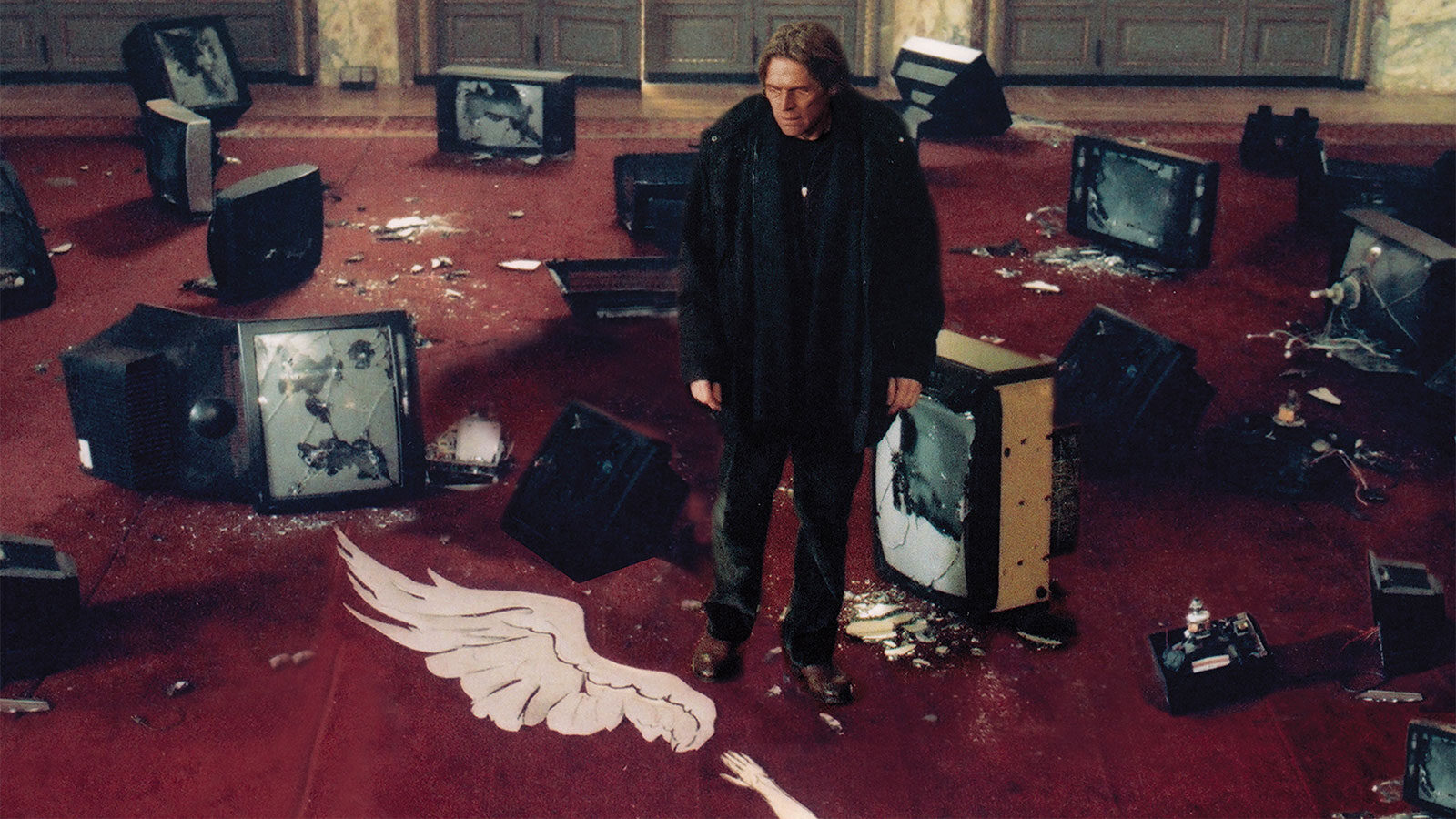
Thessaloniki International Film Festival 2008
Unlike Thessaloniki’s documentary fest, which coincides with the advent of spring each March, its bigger-and-better International Film Festival takes place during an ideal movie-watching time of year. November in northern Greece’s charming seaside city is damp and a permanent chill hangs in the air, offering guilt-free viewing for both its visiting and dedicated local attendees throughout its 10-day run. (It would seem that the natives do not like to be cold and accordingly tend to crank the theaters’ heat to oven-like temperatures.)
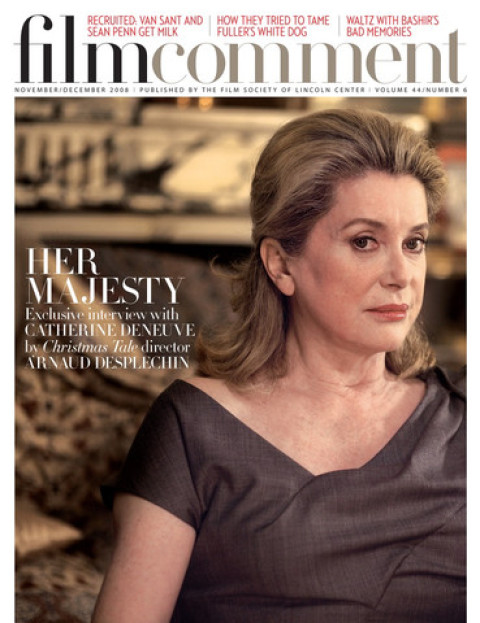
This year’s lineup presented the usual wealth of options, from the ever-popular Balkan Survey section and a Hungarian avant-garde cinema sidebar, to more mainstream American titles (The Wrestler opened the festival, while Frost/Nixon closed it) and the standard large selection of Greek features and shorts, which sometimes must be approached with a certain level of discretion. (It’s a bad sign when a multiple award recipient, Alexander Avranas’s would-be edgy domestic drama Without, is barely watchable, for both aesthetic and technical reasons.)
On a more significant Greek-cinema note, the festival hosted the world premiere of The Dust of Time, the latest from the Athens-born master Theo Angelopoulos. Though it centers on people of Greek extract, little, if any, of the film actually takes place on the country’s soil; instead, part two of his projected trilogy, which began with 2004’s The Weeping Meadow, is set in Rome, New York, Berlin, the former Soviet Union, and various other locales around the globe. It is a hugely personal film of ideas concerning family and history—and, as in all of Angelopoulos’s dense, dream-like work, requires a longer-than-average attention span. Willem Dafoe stars as a film director haunted by his ancestral past—the subject of his latest film—and his thorny present in which his troubled daughter has gone missing. Angelopoulos’s staging is immaculate if at times unwieldy, but Dafoe seems out of place, leaving the strong supporting cast led by Irène Jacob, Michel Piccoli, and Bruno Ganz the duty of holding the film together.
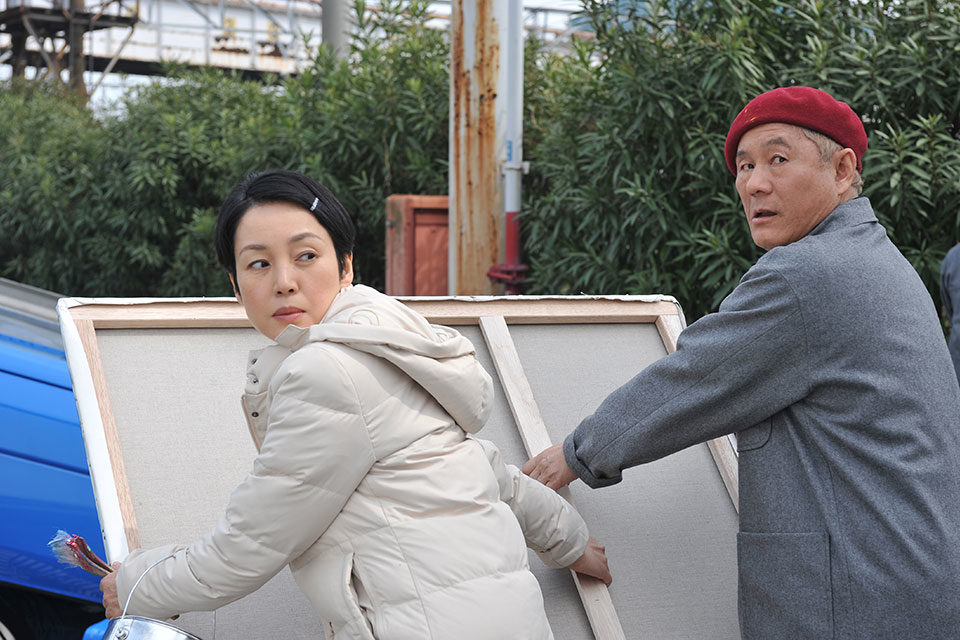
Achilles and the Tortoise
This year, tributes were paid to Greek veteran Manos Zakharias, the late Ousmane Sembene, Terence Davies, and the Dardenne Brothers. In recent years, there’s been no shortage of opportunities to see the Dardennes’ later work, but Thessaloniki provided an opportunity to savor their earlier efforts Falsch (86) and You’re On My Mind (92). (Shameless plug: the Walter Reade will also host a complete retrospective in March). In Lorna’s Silence, perhaps their greatest and by far their most moving film, Arta Dobroshi completely inhabits the title role: an Albanian living illegally in Belgium who marries a heroin addict (heartbreakingly played Dardenne regular Jérémie Renier) to obtain citizenship, assuming it’s a only a matter of time before he ODs. And in order to raise money to open a café with her Albanian boyfriend, she’s already agreed to wed a Russian also seeking residency status. Much of the film is spent closely following Lorna, her unsympathetic nature gradually softening as it becomes more evident that she is a victim of her circumstances, and that the chances of her plan coming off are slim indeed.
Also on his game was Takeshi Kitano, a special-award honoree, with Achilles and the Tortoise, the final installment in his semi-autobiographical “Artistic Suicide” trilogy. This time the artist in question is painter Machisu, who is portrayed during three stages of his life: quiet young boy with brush always in hand, college-aged student pursuing a formal education, and embittered older man (played by Kitano; the art on display is also all his) who still hasn’t had his big break, but continues trying at any cost. The early scenes are riveting, the middle odd—mostly because Yurei Yanag as Machisu incarnation #2 looks too old and resembles neither the young-boy actor nor Kitano—and the final ones wildly funny if eventually tiresome. But that’s part of the point: Machisu’s creative journey and profound self-absorption—and Kitano’s macabre jabs at the art world—are so over the top that even he himself can’t take it anymore
In two standout films, major events occur in nowhere places. Kornél Mundruzcó’s wrenching Delta, set on the remote Romanian Danube, is beautiful and pensive—like its nameless lead characters: a thirty-something man about whom we know, or learn, very little, and the sister he meets for the first time when he returns to his homeland after his father’s death. With minimal dialogue—and a surfeit of atmosphere and longing glances—a bond is established between the siblings. But when the girl decides to escape her abusive stepfather and move into the stilt house her brother’s in the process of building, the family and the townspeople view the resulting domestic arrangement with growing hostility. Featuring incest, rape, and murder, this is a tragedy that’s not easily forgotten.
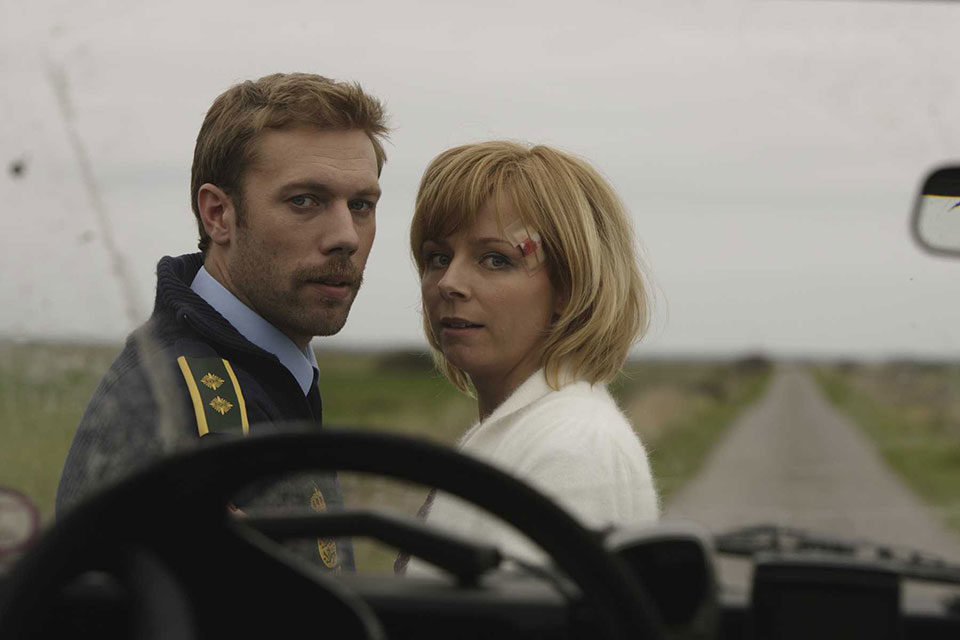
Terribly Happy
And in Henrik Ruben Genz’s Terribly Happy, a disgraced Copenhagen cop (Jakob Cedergren) is reassigned to a small town that on first glance seems awfully dull. But the pace picks up as he begins to discover that the locals practice their own form of justice, and would very much like him to convert to their sinister ways. He also falls for a woman (seemingly one of only two in the entire town) with a drunken lout for a husband. Performances, pacing, and humor are just right in this off-kilter thriller that’s already drawn comparisons to the Coen Brothers.
And finally, the most exciting discovery was Javor Gardev’s Zift, an energetic, crude, and very funny black-and-white sort-of film noir from Bulgaria whose combination of present-tense action, flashback, and hallucination is innovatively shot on 35, 16, and 8mm. In the vein of D.O.A., the film’s protagonist, Moth (Zahary Baharov), just released from prison for a crime he didn’t commit, finds himself poisoned and pursued through an unfamiliarly socialist 1960’s Sofia by a gnarly bunch of thugs who believe he knows the whereabouts of a black diamond. He, in turn, pursues the woman he loves. “What was the point?” was the first question Gardev was thoughtlessly asked at a post-screening Q&A. When it’s this much fun, who needs one?
A performance by Emir Kusturica’s No Smoking Orchestra (who were joined onstage by surprise guest Oliver Stone), plus a presentation of Victor Sjöström’s silent classic The Phantom Carriage with live accompaniment by local rockers (which was unfortunately disrupted by technical difficulties an hour and a half in) were just two of the many special events adding energy to an already lively scene. A different type of energy surged through the city just two weeks after the festival wound down, as the largest Greek riots in decades broke out when a policeman killed a teenage boy in Athens. This unrest, which has continued into the new year, is hard to imagine after experiencing the warm hospitality of a city known for its low crime rates. Hopefully by next year, when the festival celebrates its 50th anniversary, things will have returned to normal.





